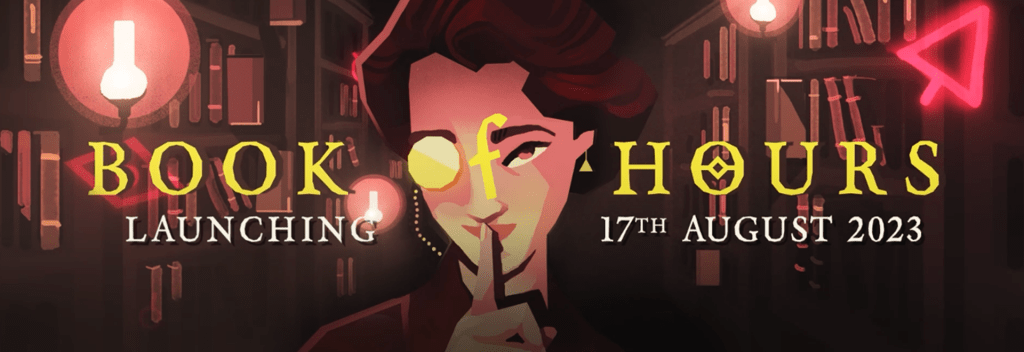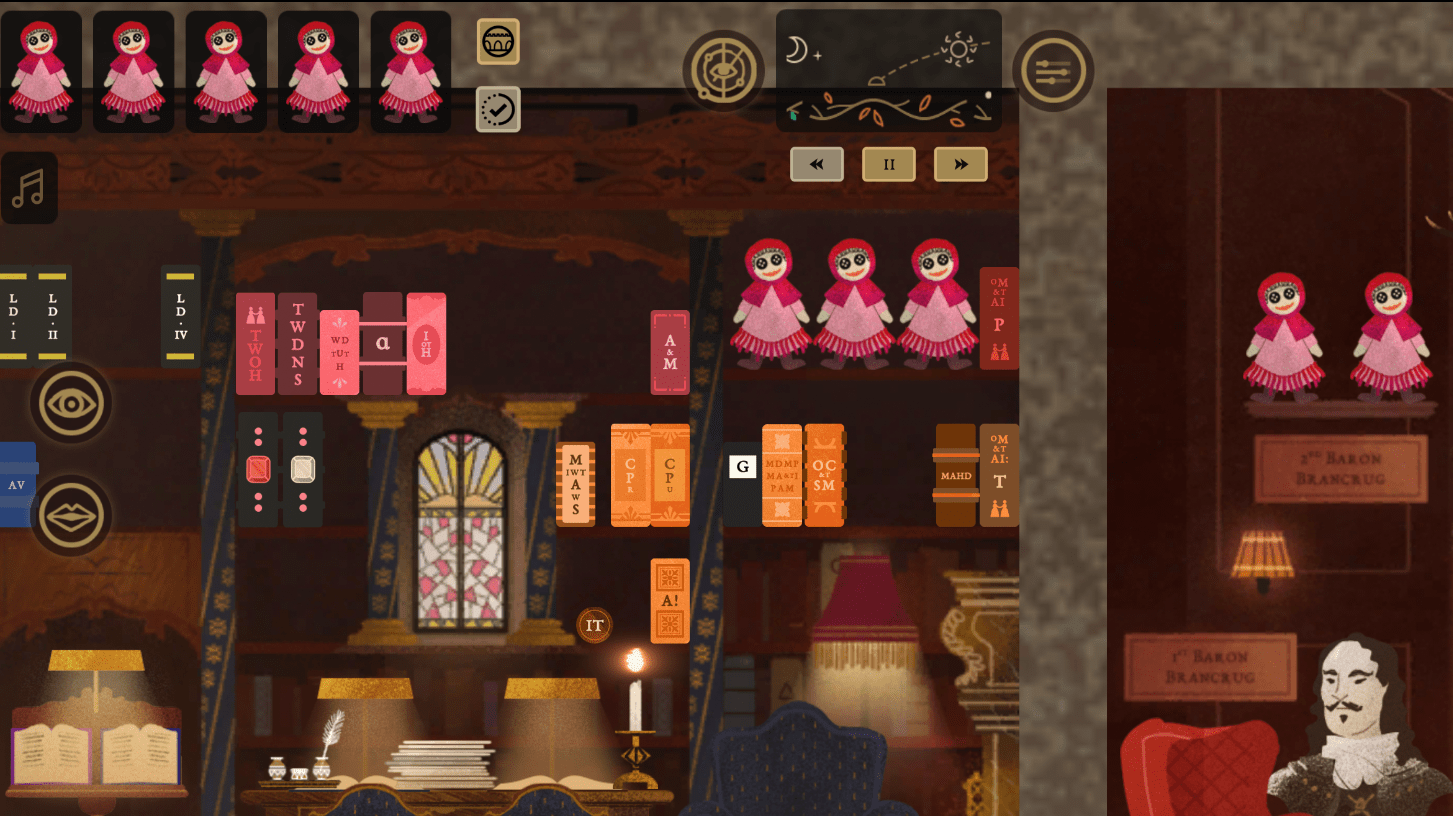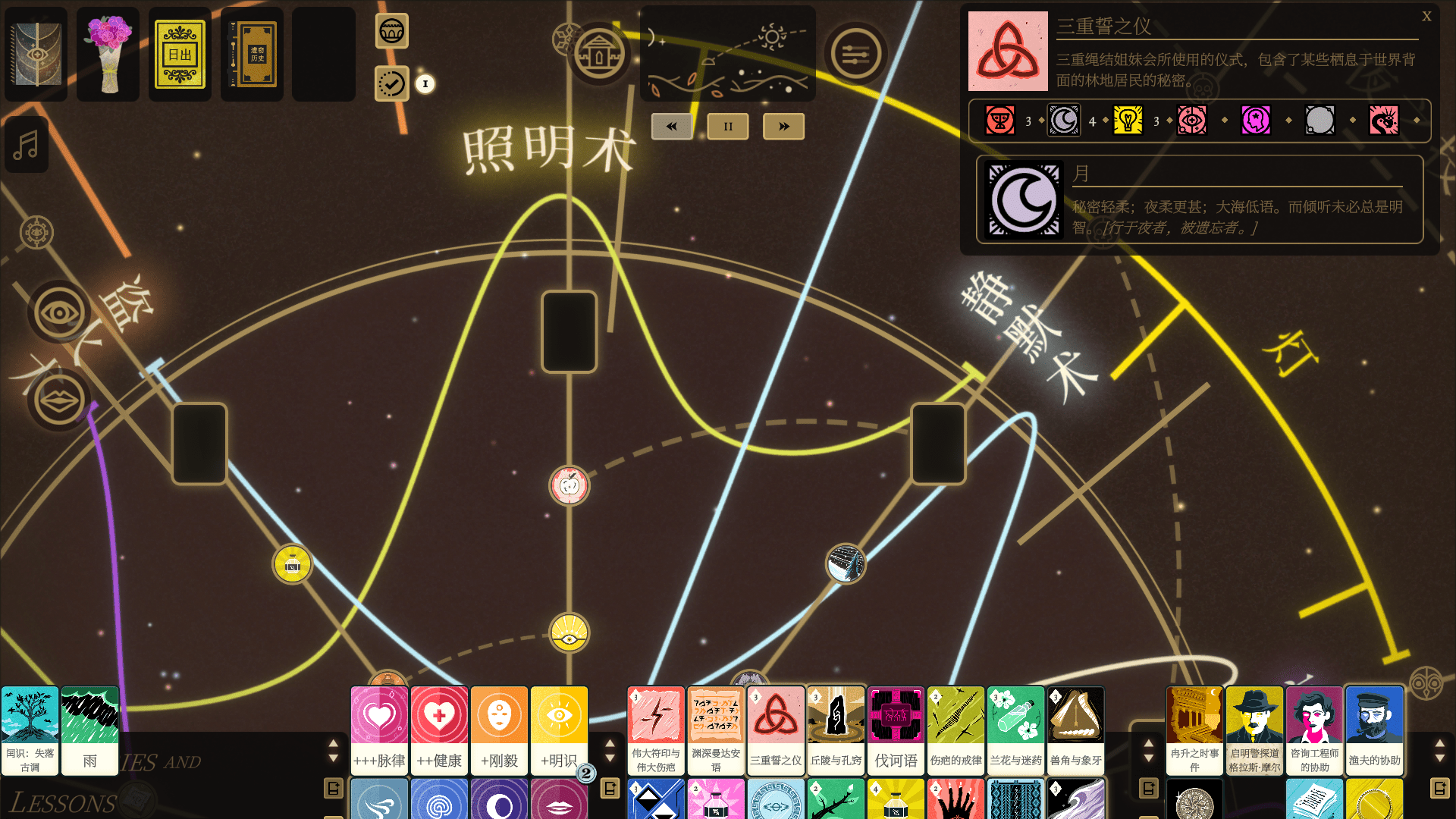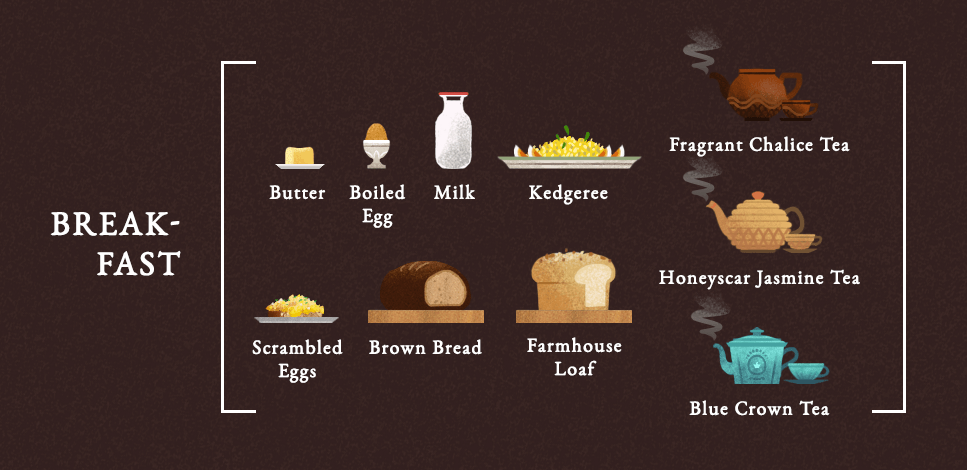
BOOK OF YEARS
ONE YEAR AGO TODAY…
On August 17th 2023, just before six o’clock in the evening, nervous glasses of wine in our trembling hands, cats winding demandingly round our trembling ankles, Lottie and I clicked the big green LAUNCH button for BOOK OF HOURS. (I believe we placed both our hands on the mouse.) In the great tradition of software launches everywhere, nothing at all happened.
The BOOK OF HOURS Steam forum went berserk. The Weather Factory subreddit went insane. Our social media accounts were instantly submerged in a battering vortex of good-natured but anguished queries. Meanwhile Lottie and I tried every channel we knew to contact our Steam rep and find out why our game hadn’t launched. (The GOG version had launched on time, but you probably know that the bulk of a small dev’s PC sales usually come through Steam, and that’s where the vortex was centred.)
The thing is – and this is absolutely central to the indie dev experience – all this vortex and berserkness business manifested as me and Lottie sitting in our living room typing quickly and saying things like ‘erk’. There wasn’t even any background music, unless you count the cats complaining about our lack of attention. My job is this: all day I sit in front of a screen in a room with my wife and I type (if I’m on a writing break, I sit somewhere sunnier with nicer coffee and type on my own). Then occasionally I type something different from usual, and that immediately causes tens of thousands of people to play our game, and/or send me emails about how our game isn’t working. Any software developer will be familiar with this. Even when I worked at bigger companies, launches were often anticlimactic. You make a deal of it with bunting and countdowns and sparkling drinks in flimsy plastic cups, and then it goes quiet and someone comes back from the toilet and says ‘oh did we launch?’ But all over the world there is a ripple of change.
The launch was fine in the end. Our Perpetual Edition offer (any and all expansions free if you buy at launch) meant we had to do something a bit non-standard, the non-standard thing gunged up the launch process, and our famously affable Steam rep, though theoretically away at the time, got back in contact to sort it out. We launched, a not quite half an hour late. By then, the degree of desperate enthusiasm showed us that the launch was likely to go okay.
And lo, it was so. BOOK OF HOURS has been the most successful game of both our careers. Not in a dramatic and overwhelming sort of way – what we do is, and will always be, too niche – but it’s sold a little more than Cultist Simulator, which itself sold a little more than SUNLESS SEA, and the Steam review % is much than either of those. This makes sense – if you build a following, and get better at making games, you do a little better each time – but it’s never something you can count on, especially in the fervid rainforest which is game development.
So if you bought a copy – whether you’ve been following us since the early days, or you just stumbled across us last week – then thank you! Without your support, Weather Factory would be a rain-haunted shell. And thanks to your support, we likely have the resources to make a third game… of which more shortly.
SO THE MOST SUCCESSFUL GAME OF YOUR CAREER IS… THE NICE ONE
Remember the origin story of BOOK OF HOURS? Back in 2019, I was working on the GHOUL and PRIEST expansions for Cultist Simulator. At that point I’d already been working for two years on this cult-themed body-horror-heavy game where you play a manipulative monomaniac, and both those expansions are particularly gruesome. So in a melancholy moment I tweeted this:
idea: extremely relaxed Cultist Simulator expandalone
you’re a librarian
books arrive in your occult library and you just examine, catalogue and arrange them, then provide them to visitors
very low challenge, lots of careful board organisation
— Alexis Kennedy 🕯 (@alexiskennedy) January 16, 2019
It got a lot more engagement than I’d expected and before we knew it we found we’d sort of announced our next game before we’d known what it was ourselves. But we went ahead and for the first time in my career I made a game which contained no cannibalism nor allied trades. It was a bit of a departure and I’m relieved it worked out so well.
HOURS is not quite a certified horror-free game. You can find manskin parchment if you poke around the house, there were some pretty nasty things going on with the Cucurbit Prison, and of course some of the occult books were written by people who these days would merit their own soberly narrated Netflix documentary. But it’s clearly the kindest game of my career. The tone throughout is eerie rather than grisly, and the worst thing you-as-protagonist can do is ‘forget to feed the cat for a bit’. (Well yes there are the endings where you can unleash theomachic conflict or convince the Sun to start drinking blood again, but that’s all another History.)
I’ve really enjoyed the quieter tone, and it’s been good discipline for me as a writer to work without some of my habitual tools. But I don’t want to leave those tools in the box forever. So Cultist was sour, Hours was sweet, Game Three will be sweet and sour. More on that, as I said, in a bit.
SO WHAT HAVE YOU BEEN UP TO IN THE YEAR SINCE LAUNCH?
The first few months were post-launch support. BOOK OF HOURS was in better shape coming out of the gate than Cultist Simulator. This was as I hoped – we had a nice long beta period and a shared codebase – but HOURS is quite an intricate machine and there were lots of things that needed tidying up. And we’ve added a lot of stuff too: the crafting helper panel, the zoom-to-cursor feature that I finally got working properly, the order form system, layers and layers of optimisation, all that good stuff. The secret panels in a few rooms of the house that you can find only with a sharp eye or a lucky click. And the feature almost no-one has discovered, where whatever you put in the thirteenth niche will appear in the next game. And the weird sub-feature of that which I think no-one at all has discovered yet.
Oh and the Hush House Advent Calendar, which I put together very hastily because I wanted to do something nice for my Christmas-obsessed wife, and which as a result was a little buggy and in particular contained perhaps the most notorious bug ever to haunt these halls:
(if you’re interested, I did a whole post on the cause of that and of another dozen hauntings, here.)
Anyway since then, it’s been localisation and the GIGANTIC EXPANSION.
TELL US FUN HORROR STORIES ABOUT LOCALISATION, AK
We’re about to release full Russian and Chinese localisation (they’ve been in beta a few months now), which is – you know Hofstadter’s Law? ‘It always takes longer than you expect, even when you take into account Hofstadter’s Law’. Localisation is always more work than we think. Obviously the translators do the bulk of the work, but some of that work means asking me questions which take, um, considerable attention…
| Since Shell is a rather obscure entity, could you please clarify which word should be used here (assuming it is the same Shell in both cases) – should we use the word for a sea-shell or an egg-shell? Or even crab-shell, since the description of Wist malady implies it is related to Carapace Cross? | I would like to imply both the casing of an insect and the outer surface of an egg, but if that ambiguity isn’t possible in Russian, ‘insect’ is the preferred implication |
| What fountain is that? Is it a fountain spring, your regular garden-variety fountain, or a drinking fountain (just kidding on that last one)? | A fountain spring. This is the ‘Spring’ referred to in the 1932 letter from Teresa in the hidden papers, which the Long of Noon used to drink from in order to be forgotten. I said ‘fountain’ rather than ‘spring’ only for reasons of prosody 🙂 so translate freely in Russian |
| Sorry for asking this so late – we have found it’s Greek etymon ‘calypto-‘ (hidden, covered), while calyptra also refers to hoodlike structure in plant. So considering the relationship between the Calyptra and the Chancel, whether we should translate it into a botanical term, or shouldn’t do so?
By the way, we temporarily translate it as ‘根冠’, ‘root cap’. We try to make it sounds like ‘root and cap’, and the description of Tree’s flowers used ‘lies heavy’, so we guess root or underground may be a part of Calyptra’s imago. |
The Russian translators just asked about this and here was my answer:
”’Calyptra’ is from the Greek meaning ‘covering’ or ‘veil’, particularly a woman’s veil; I think I also referenced the botanical term which derives from that. I imagine the moth genus has the same etymology. Some authorities in the game use the term to refer to a law or principle that conceals knowledge, others to the entities that enforce that law – there’s a synecdochic effect – and authorities disagree on how the term should be used. The confusion about number, and about whether an article should be used, reflects this.’ I think a botanical term is the best approximation. But can you give me a quick summary of how you’re translating Chancel and also Haustorium? these are all similar co-opted terms and there is probably a useful parallel in approach somewhere. (I assume in Chinese there won’t be the same problem of deciding number / capitalisation!) |
| ‘Ivory’ usually has two meanings:
①the white color of bleached bones In BoH there seems to have three kinds of Ivory: the Grail’s Name (we have a special translation for it), for the Ivory Dove and angthing connect with him(like the Obliviate), and the others(like Silent Typewriter). On the whole we translate the second kind as ①, and the third as ②. If the above details are correct, how should we translate ‘the ivory towers’ and ‘Carapace-spires of horn and ivory’ in endings? ①, for it happens in Port Noon, or ②, for it’s connection with horn? |
I think the simplest answer is (2). More details: ‘Ivory tower’ is a specific and widely recognised idiom: https://en.wikipedia.org/wiki/Ivory_tower ‘Horn and ivory’ is a specific reference https://en.wikipedia.org/wiki/Gates_of_horn_and_ivory that players have recognised elsewhere – the White Door and the Stag Door in the Mansus can be interpreted as an ivory gate and a horn gate. |
Now, not all the questions are this complicated, but there are literally hundreds of questions in all, and few were questions you’d want to answer before a second cup of coffee. My hat is off to Dove Archive and Riotloc (our Chinese and Russian translators respectively) for the intense and sophisticated effort they put into navigating the labyrinth of lore.
And then there’s the technical and the UI side: the problems of presenting Chinese characters in a way that works with the logo on the menu screen, the many Russian texts that tend to be longer than English labels and creep over the edges of things, the dozens of items I accidentally hardcoded and had to rip out and dynami…fy..icise, the week Lottie spent just putting together book covers for Russian and Chinese characters, and the Gordian mare that resulted from keeping card ordering rules semi-consistent across all three languages…
We’re tidying up now, finally. Japanese should be along later; depending on all the usual boring business reasons we’ll make a decision on what other languages to localise into; and we do plan to release Steam Workshop / localisation modding support for people to do their own translations.
OOH, MODDING?
Don’t get excited. My answer on game modding support remains ‘maybe, someday, but not a priority right now.’ But we do want to offer, specifically, modding support for languages, so that will be along in a while.
WHAT ABOUT THAT EXPANSION?
Okay, now we’re talking. HOUSE OF LIGHT, the expansion I’ve been working on since the beginning of the year, is nearly out. It’s an absolute chonker. Here are the headline features:
FOOD: Combine Sustenance and Cooking Ingredients at the three Kitchen workstations to create dozens of new dishes. You’ll need Kitchenware items to find all the recipes.
WRITING-CASE: You’ll receive this at the end of the first Spring season after you’ve replied to St Rhonwen. You’ll be able to use the calling-cards left by satisfied visitors to invite those visitors back to the House.
SALONS: Place food and drink in one of the six Salon rooms, and then use the bell to begin a Salon. Do it right and you’ll be rewarded with sparkling conversation… and lessons.
MANUSCRIPTS: Use Paper, Ink, and a Skill to write a Manuscript based on that skills, and satisfy your Visitors’ needs for more specific knowledge. Lessons from Salons will help you improve those Skills and write more useful Manuscripts.
FURTHER STORIES: Once you’ve completed an Incident, follow it up in the Tree of Wisdoms. Visitors will need more specific help here – perhaps a book on a specific topic, or a specific book.
THE INSTITUTE: Look for the lighthouse, out at sea. When your Visitors are ready, use it to establish the true heirs to the Curia of the Isle, unlocking a new kind of ending.
The Salons, Further Stories and Institute are, as a one-time lawyer of mine would say, ‘compendious’; and honestly even the Food absorbed a frankly insane larder-load of effort. So there’s more content (and new art) in HOUSE OF LIGHT than in all the Cultist Simulator expansions put together.
Because it’s such an absolute beast, and because I’ve now been working on BOOK OF HOURS, on and off, for five years, there won’t be another expansion any time soon. I think we will probably go back and do at least one more (working name HOUSE OF HUES) but if so it’ll be after a break. And when I say ‘break’, I mean a few months of pre-production on Game Three.
OBVIOUSLY YOU CAN’T TELL US ABOUT GAME THREE.
Reverse psychology huh. Well you got me. Here’s a little.
-
-
- Three will be set in the Secret Histories world again. There are clues about it in the Lighthouse Institute endings in HOUSE OF LIGHT.
- It is unmistakably the most ambitious thing Lottie and I have yet done. It’s also the most traditional thing we’ve done, although it’s really not very traditional.
- It’s something that many players, over many years, have vocally hoped for.
- At least two characters in Three are among the most beloved, or most provoking, fan favourites.
- At least two other characters in Three are fervently discussed Secret Histories characters who have made at most fleeting in-game appearances. One of those characters is located in the first person in Three.
- The working title of Game Three is the name of a beloved book from the Secret Histories.
- It contains at least one carnival.
-
Once we’re through the support aftermath of localisation and HOUSE OF LIGHT, we’ll begin pre-production: the process of answering questions like ‘what will this look like’, ‘will it actually work’ and ‘do we have enough money to make it’. And when we come out of the other end of that, we’ll have more to tell you.







I’ve been a fan of your work from Fallen London onwards. I think it is fair to say, without exaggeration, that Cultist Simulator helped me to change careers into highly rewarding work I find philosophically meaningful, to better understand the nature of games, to become a better coder and linguist, and (in particular with the Dancer DLC) to fully come to terms with my relationship with my sense of self.
Your work may be niche, as you put it, but in a way that has made it deeply meaningful. I hope that when the path becomes difficult, you never forget that your work can change lives with the stories you want to tell.
I can’t wait to see what you do next.
Crikey! Thank you, always really glad to hear my work’s had an impact.
Congrats!
Discovering your games has been a pleasure, can’t do much but wish you all the best for the future!
Any plans on making a book of the games BoH and CS?
Ohh new game, I am intrigued. Chalk me down as a supporter and philo- of your games.
Fucked up how so many games let you equip 30 different swords but only 1 set of eyes, that’s not nearly enough eyes. I hope GAME THREE will remedy this problem. Best wishes and good luck.
I don’t know what have pricked my attention the most: the crumbs of information we got about the third game, or the announcement of “HOUSE OF HUES”?
I hope the title of trilogy’s the final piece will be “Travelling at Night”.
Hi! Love the game – looking forward to the DLC. Do you recommend starting a new save for the DLC? Thank you for your work!
The expansion takes account of decisions already made in the game, so it’s really up to personal taste. If you’re right in the middle of an existing game that you’re enjoying, maybe stick with that, if you’re coming back to the game after an absence, maybe start a new save!